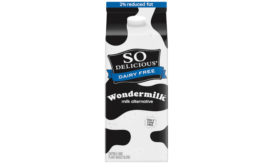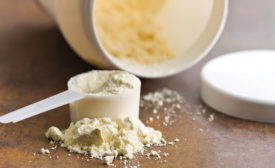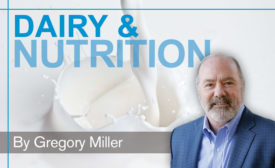Home » Keywords: » plant proteins
Items Tagged with 'plant proteins'
ARTICLES
Protein from animal and plant sources considered “essential ingredients.”
Read More
Power up with dairy and non-dairy protein products
Protein from animal and plant sources considered “essential ingredients.”
May 20, 2024
The future for dairy and plant-based hybrids
By incorporating plant-based proteins into dairy products, manufacturers could tap into trends, appeal to new markets and add functional characteristics.
March 4, 2022
Danone North America to launch Silk Nextmilk and So Delicious Wondermilk
The new plant-based offerings are designed to better mimic dairy beverages.
October 1, 2021
Should you fortify yogurt with dairy or plant protein?
Plant proteins struggle to match dairy protein’s sensory and nutrition quality.
April 21, 2021
Processors could tap into the ‘blend trend’
Blending plant based-proteins with dairy proteins can deliver the optimal solution
March 9, 2020
Merit, Burcon and Nestlé announce plant-based proteins partnership
Under the joint development agreement, Merit will produce ingredients for Nestlé’s plant-based products.
January 28, 2020
Dairy proteins face challenges, opportunities
New research reveals that whey protein is more environmentally friendly than previously realized
January 16, 2020
Making the case for dairy proteins
Plant-based alternatives do not have the same protein benefits as dairy foods
September 24, 2019
Overcome the challenges in plant protein applications
Alternative proteins offer a perfect solution to a more sustainable food production system. Customers are ready to embrace this trend, but will do so only if taste, texture and healthfulness remain uncompromised.
September 17, 2019
Stay ahead of the curve. Unlock a dose of cutting-edge insights.
Receive our premium content directly to your inbox.
SIGN-UP TODAYCopyright ©2025. All Rights Reserved BNP Media.
Design, CMS, Hosting & Web Development :: ePublishing
.jpg?height=168&t=1716226591&width=275)












